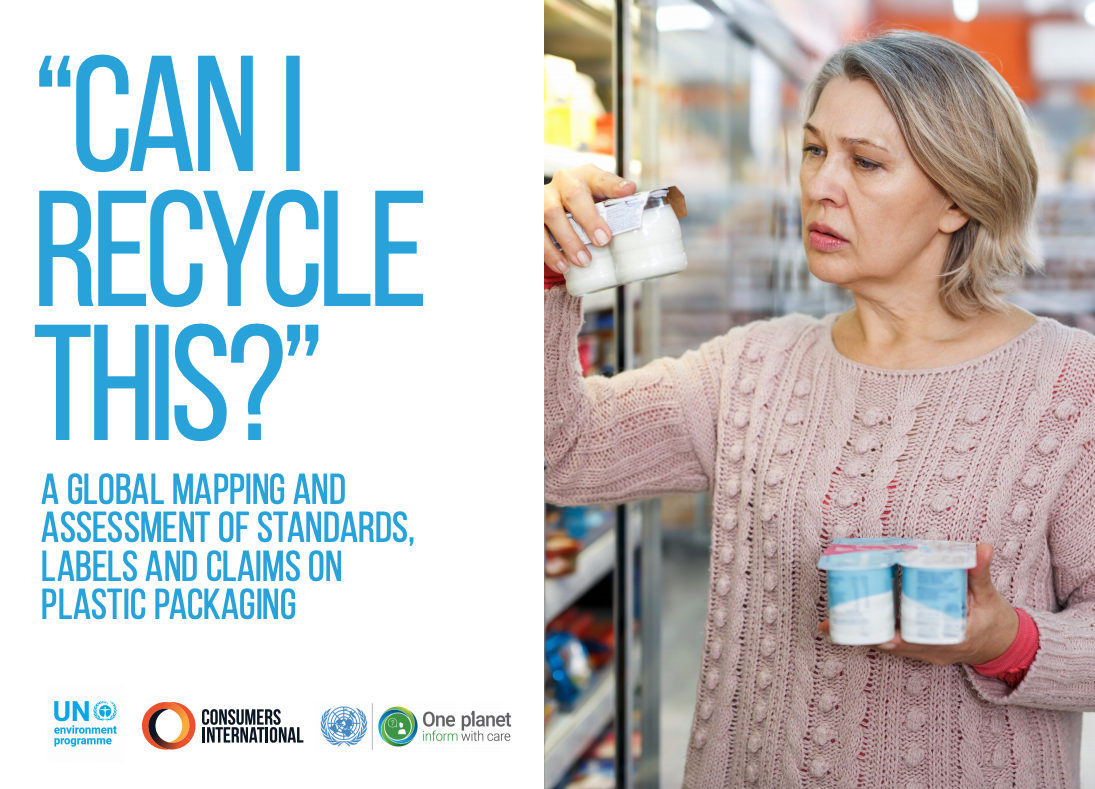A Global Mapping and Assessment of Standards, Labels and Claims on Plastic Packaging
Consumers International, UNEP and One Planet Network has released their global assessment of recycling and sustainability labelling on plastic packaging.
The research found only 19% of assessed labels give consumers quality information to make informed recycling and purchasing decisions. In response the report authors have created five global recommendations for action to engage business, policy makers, standard setters in creating better plastics labelling that make sustainability the easy choice for consumers.
Consumers are increasingly aware of the impact of plastic on the environment and want to reduce their use. However, the information provided to them to make more sustainable choices is not always clear or actionable, leading to reported confusion. There is a lack of standardisation and accountability with individual brands creating their own labels and claims without third party certification. Ensuring better labelling is an important way to support consumers to be a force for change.
A global approach is needed
Globally, only about 9% of plastic waste has been recycled and about 12% has been incinerated. The vast majority ends up in landfill or leaks into the environment. This is far away from the global vision for plastics to be 100% reusable, recyclable or compostable. Rising public awareness and concern about plastics has encouraged businesses to increasingly communicate this information about their packaging. However, the information is often unclear.
A global, multi-faceted, multi-stakeholder approach is the only way to tackle a crisis on this scale. Better plastics labelling is a simple and powerful way to help consumers to buy more recyclable and recycled products and to dispose of them correctly.
Five global recommendations for action
The next stage of the project is to move forward the report’s five global recommendations for action, working with key strategic partners:
- Businesses following the Guidelines for Providing Product Sustainability Information in their plastic packaging communications.
- Global consistency when it comes to definitions relating to the content and reusability of packaging or disposable items.
- The definitions and technical requirements used in standards related to recyclability, compostability, and biodegradability should better reflect real world conditions and be more attentive to accessibility and consumer understanding.
- The use of the ‘chasing arrows’ symbol should be restricted to indicating recyclability.
- Informative and verified recycling labels should be adopted and their proper use enforced.




